Source: Unsplash.com
Cleantech Industry Overview
The cleantech industry is a dynamic and fast-growing sector focused on developing innovative solutions for environmental sustainability. It encompasses a wide range of technologies, including renewable energy, clean transportation, water purification, and waste management. However, within this promising industry, there is a constant battle over intellectual property rights and patents. These disputes often lead to what are known as “patent wars,” where companies fiercely compete to protect their innovations and gain a competitive edge in the market.
Renewable Energy Innovation: The cleantech industry is at the forefront of driving innovation in renewable energy and sustainable technologies.
This clash of interests between innovation and competition has significant implications for the future of clean technology development.
Disputes in Cleantech Patents
Challenges in Patent Disputes
The cleantech industry faces numerous challenges when it comes to patent disputes. As companies strive to protect their intellectual property, conflicts often arise over the ownership and rights to innovative technologies. These disputes can lead to prolonged legal battles, consuming valuable time and resources that could otherwise be dedicated to furthering advancements in clean technology.
Impact on Innovation
The ripple effect of patent disputes extends beyond legal arenas, influencing the pace and direction of technological advancements. When companies are embroiled in litigation, resources that could be used for research and development may instead be diverted to legal defenses, potentially slowing the rate of innovation.
Furthermore, the fear of infringement lawsuits can deter new entrants from joining the cleantech industry, limiting the diversity of ideas and solutions. This scenario underscores the need for a balanced approach to intellectual property rights that protects innovations without stifling creativity and collaboration.
Balancing Innovation and Competition
Fostering a Collaborative Environment
To mitigate the negative impacts of patent wars, there’s a growing trend toward fostering collaboration in the cleantech sector. Initiatives like open innovation platforms and joint research ventures are being encouraged, where companies share knowledge and resources to tackle common challenges.
This collaborative approach not only reduces the likelihood of litigation but also accelerates the development of sustainable technologies. By pooling expertise and resources, companies can achieve greater advancements than they could independently, driving the industry forward more effectively.
The Role of Policy and Regulation
Governments and international bodies play a crucial role in shaping the landscape of patent law in the cleantech industry. Policies that encourage transparency, fair competition, and innovation can help prevent the escalation of patent wars.
For instance, the introduction of ‘green patents’ fast-tracks the patenting process for environmentally friendly technologies. Such initiatives highlight the importance of supportive policies in fostering an ecosystem where innovation thrives alongside healthy competition.
Strategies for Navigating Patent Challenges
Intellectual Property Management
Effective management of intellectual property is crucial for cleantech companies. This involves not only securing patents but also staying informed about the IP landscape, including potential infringements and emerging technologies.
Companies should also consider alternative IP strategies, such as defensive publishing, where details of an invention are published to prevent others from patenting the same idea. This approach can be particularly useful in areas where the primary goal is widespread adoption rather than exclusive commercialization.
Navigating Through Litigation
In cases where litigation is unavoidable, cleantech companies must navigate the legal system strategically. This includes understanding the nuances of patent law, assessing the risks and benefits of litigation, and exploring settlement options where appropriate.
Engaging in mediation or arbitration can often be a more cost-effective and less adversarial approach than court proceedings. These alternative dispute-resolution methods can preserve business relationships and lead to more innovative and collaborative solutions.
The Future of Patent Law in Cleantech
Emerging Trends and Technologies
The cleantech industry is continuously evolving, with new technologies like artificial intelligence and blockchain finding applications in sustainability. As these technologies develop, they will bring new challenges and opportunities in the realm of intellectual property.
Keeping abreast of these trends is essential for companies to protect their innovations while adapting to the changing landscape. This includes understanding how traditional patent laws apply to new technologies and how these laws might need to evolve.
A Call for Harmonization
There is a growing need for international harmonization of patent laws, especially in a global industry like cleantech. Differing patent laws across countries can create confusion and inefficiencies, hindering the global development of sustainable technologies.
Efforts towards harmonization, such as the Patent Cooperation Treaty (PCT), aim to streamline the patent application process across multiple countries. Such initiatives are crucial in creating a more cohesive and supportive global framework for innovation in cleantech.
Conclusion
The cleantech industry stands at the intersection of innovation and competition, with patent wars being a significant aspect of this dynamic. While protecting intellectual property is vital, it’s equally important to foster an environment conducive to collaboration and sustainable development. As the industry evolves, so must the strategies for navigating patent challenges, ensuring that the pursuit of legal rights does not overshadow the ultimate goal of environmental sustainability.
